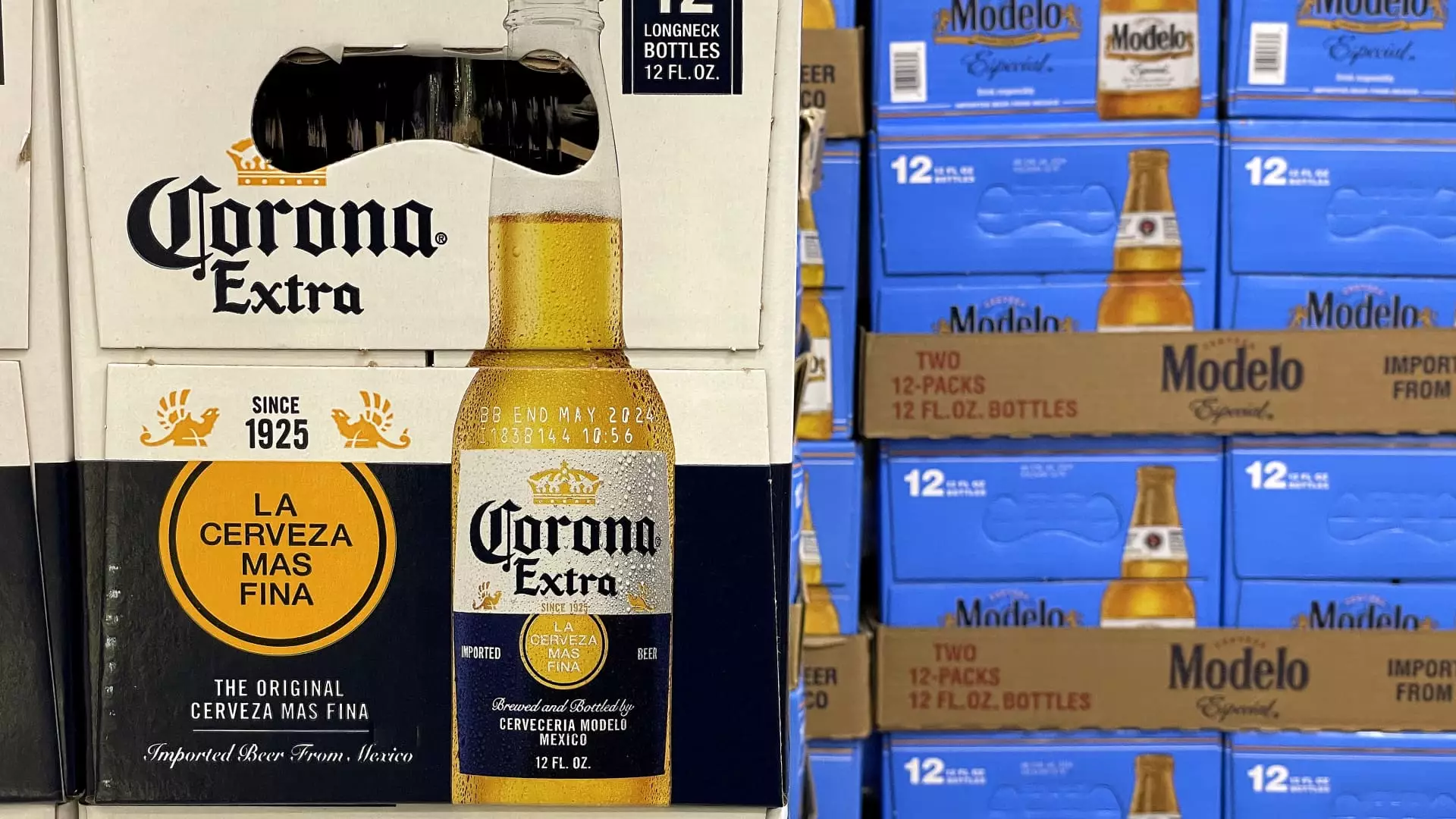The recent quarterly results of Constellation Brands have raised significant concerns amongst investors regarding the future viability of the company as a staple in their portfolios. The results released before the opening bell on Friday reflected a stark divergence from market expectations. The lackluster net sales and earnings performance could signal a turning point for the company widely recognized for its portfolio of beer, wine, and spirits.
For the three months ending November 30, Constellation Brands reported net sales of $2.46 billion, which missed analysts’ expectations of $2.53 billion. Year-over-year comparisons indicate a stagnation in growth, with sales essentially flat compared to the prior year. Likewise, the adjusted earnings per share (EPS) reported at $3.25 was shy of both the previous year’s figure and analyst benchmarks anticipating a figure of $3.31. This underperformance raises eyebrows, as it not only reflects a failure to grow but also casts doubt on the overall health and trajectory of the company.
Investors might have once viewed Constellation Brands as a solid bet based on its competitive beer segment, featuring popular Mexican brands such as Corona and Modelo. However, with stagnant sales and earnings, the company’s performance raises the question of whether the beer division can sustain growth in the current market environment.
While the company’s beer division continues to be the focal point of its growth strategy, the numbers indicate that even it is beginning to show signs of strain. Although beer sales rose by 3% year over year, this growth fell short of the hype and expectations built around the brand. Operating income grew by only 1.7%, and the operating margin contracted, which has left analysts questioning the division’s ability to maintain its status as the growth engine for the company.
Moreover, signs of weakening in consumer demand for alcohol, partially driven by younger consumers’ shift towards non-alcoholic options such as cannabis-based alternatives, cannot be ignored. The impact of GLP-1 weight loss medications may also be influencing consumer habits, leading to a decline in beer and alcohol consumption overall. This trend is especially troubling for a company that has hinged much of its growth narrative on the strength of its beer brands.
Challenges in Wine and Spirits
Constellation’s struggles in the wine and spirits sector are contributing to its challenging financial landscape. The division experienced a staggering 14% decline in sales, ultimately recording only $431.4 million for the quarter. This performance not only fell short of analyst expectations but also highlighted an alarming trend of shrinking margins and customer interest. The steep drops in shipment volumes and depletions further illustrate the struggling fortunes of this segment.
Even amid the broader pressures, management has suggested a strategy centered on divesting some of its wine and spirits holdings to focus on premium brands—yet this move may lack sufficient momentum to restore confidence in the company’s core offerings. As the wine and spirits market falters, it casts a shadow over the overall prospects for Constellation Brands.
The broader economic context also highlights challenges for Constellation Brands, with inflationary pressures impacting consumer spending. Potential political shifts and regulatory changes, particularly with the anticipated policies of the Trump administration regarding immigration and trade, introduce uncertainty that further complicates the company’s outlook.
Management has conceded to reality by revising fiscal year projections downward for both sales growth and operating income across its segments. The forecast for wine and spirits suggests a notable decline in sales, and while the beer segment projects modest growth, it is admittedly lower than previously forecasted. Such revisions signal not only an acknowledgment of current issues but also a lack of confidence in a swift recovery in the sector.
In light of the disappointing results, it appears that Constellation Brands is at a crossroads. With mixed signals coming from its core divisions, particularly when accounting for challenges in wine and spirits, the road ahead may be fraught with difficulties. Investors will need to carefully weigh their options, especially given the stock’s significant volatility. There seems to be a growing consensus that this is not a situation that warrants a buy-in opportunity, but rather a signal to reassess positions in light of evolving market conditions. The upcoming quarters will be critical in determining whether Constellation can reestablish itself as a strong competitor in an increasingly challenging landscape.

